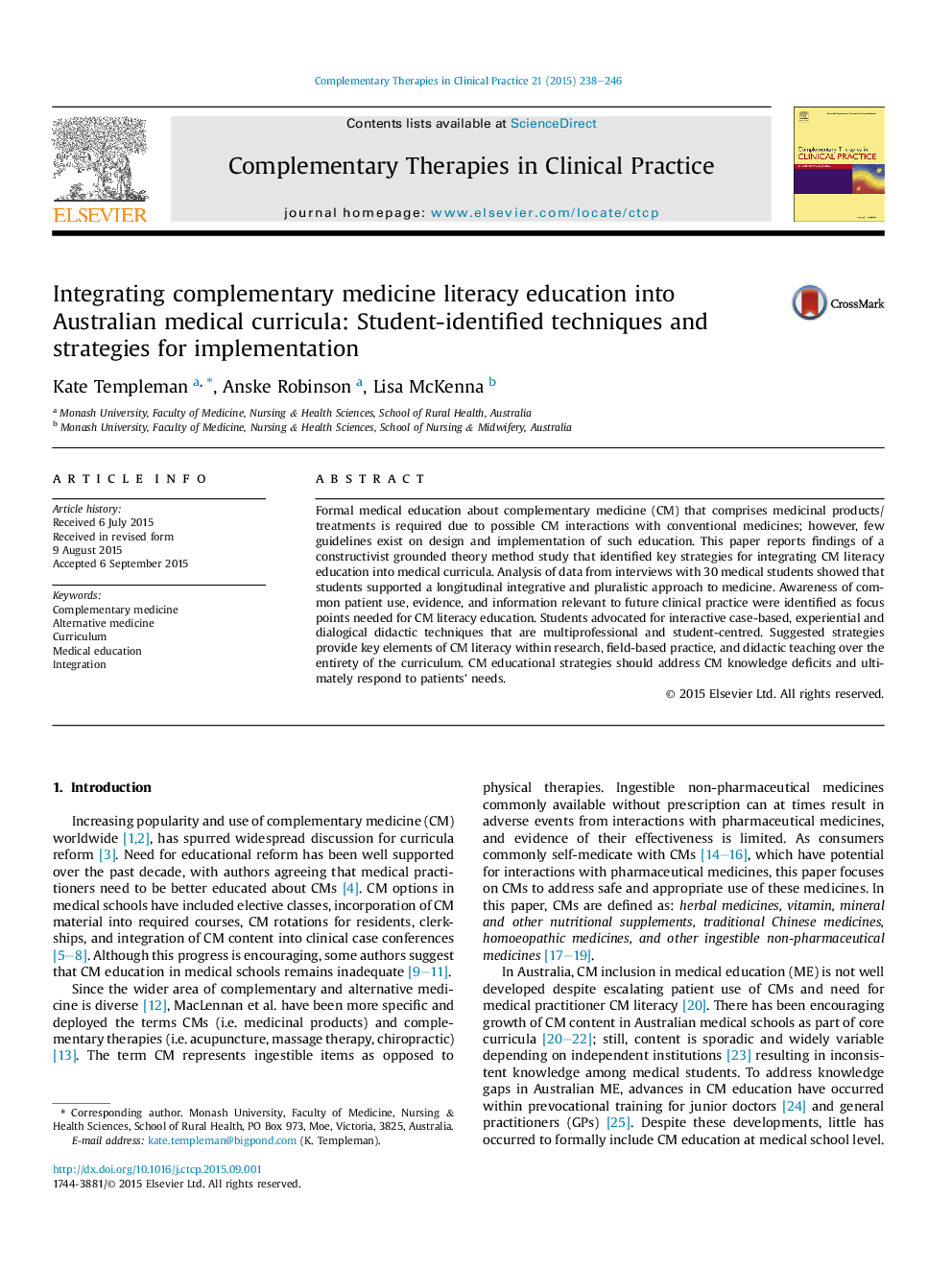| Article ID | Journal | Published Year | Pages | File Type |
|---|---|---|---|---|
| 2628282 | Complementary Therapies in Clinical Practice | 2015 | 9 Pages |
•A systematic approach to CM education through collaboration is necessary.•Alignment with broader curriculum reform and local autonomy is indicated.•A critical scientific approach and clinical relevance fosters success.•Didactic, field/practice, and research-based strategies are proposed.•Student-centred case-based, experiential and dialogical techniques are suggested.
Formal medical education about complementary medicine (CM) that comprises medicinal products/treatments is required due to possible CM interactions with conventional medicines; however, few guidelines exist on design and implementation of such education. This paper reports findings of a constructivist grounded theory method study that identified key strategies for integrating CM literacy education into medical curricula. Analysis of data from interviews with 30 medical students showed that students supported a longitudinal integrative and pluralistic approach to medicine. Awareness of common patient use, evidence, and information relevant to future clinical practice were identified as focus points needed for CM literacy education. Students advocated for interactive case-based, experiential and dialogical didactic techniques that are multiprofessional and student-centred. Suggested strategies provide key elements of CM literacy within research, field-based practice, and didactic teaching over the entirety of the curriculum. CM educational strategies should address CM knowledge deficits and ultimately respond to patients' needs.
